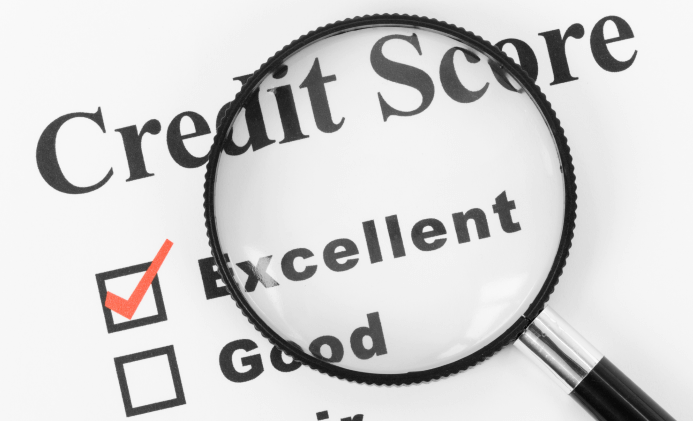Jun 18, 2025
5 min read
What Is a Personal Guarantee for a Business Loan?
A personal guarantee is a legally binding promise made by a...
Read story

As a small business owner, it’s important to familiarize yourself with your company’s credit score and know how to find it. You should also be aware of factors that may affect it. Make a point of continually monitoring your business credit score for potential changes or mistakes.
Your business credit score is similar to your personal credit score in that it represents your business’s credibility as a borrower. Once you start your business, obtain an EIN number, and create a bank account for your company, business credit bureaus will start gathering information about your company by looking at public records. Your business credit score is connected to your company’s EIN number. It takes time to build up, so if you’re just starting out, check out these tips for improving your credit.
You can find your business credit score by checking one of the three main business credit bureaus.
Decide which of the three main business credit bureaus—Dun & Bradstreet, Experian Business, or Equifax Business—you want to use to access your credit report and score.
Visit the chosen credit bureau’s website and sign up for an account. You may need to provide some basic business information, such as your company’s name, address, and EIN.
Each credit bureau offers different plans and report options. Review the available plans and choose one that best suits your needs:
Enter the required business information to access your credit report. This may include your EIN, company name, address, and other relevant details.
Once you’ve completed the necessary steps, you will receive your business credit report and score. Review the report carefully, looking for any errors or discrepancies that may need to be addressed.
Regularly monitor your business credit score, especially when you’re planning to apply for loans, negotiate contracts, or make significant financial decisions. Stay informed about changes in your credit score and take steps to address any issues that may arise.
Dun & Bradstreet offers a range of services for monitoring and building your business credit. Their CreditSignal tool is a free service that provides alerts on changes to your business credit file for 14 days. However, it doesn’t grant access to your credit scores. To view your actual scores, D&B provides paid options, starting with CreditSignal Plus for $15 per month, which offers alerts along with score visibility, or CreditMonitor for $39 per month, which includes full access to your PAYDEX score, delinquency score, failure score, and supplier evaluation risk ratings.
The PAYDEX score is one of D&B’s most important credit scores, ranging from 0 to 100, with a higher score indicating a better payment history. Additionally, businesses need a D-U-N-S Number to access D&B’s services. You can apply for a D-U-N-S number for free, which is used to track your company’s credit activity.
Experian provides flexible credit report options, beginning at $39.95 for a one-time CreditScore report, which includes your business credit score (on a scale of 1-100), payment trends, credit summary, and financial stability risk rating. This rating helps predict the likelihood of your business defaulting or facing bankruptcy within the next 12 months.
If you need ongoing access to your credit report and score, Experian offers the Business Credit Advantage plan for $189 per year, which includes continuous monitoring, alerts, and a more detailed analysis. The Intelliscore Plus model is central to Experian’s credit evaluation, incorporating factors like payment history, delinquent accounts, and credit utilization to determine your score.
Equifax’s business credit reports provide a comprehensive look at your business’s credit health, including the credit risk score, business failure score, and payment index score. These reports also include public records such as bankruptcies and tax liens.
A single report from Equifax costs $99.95, but they offer a multi-pack of 5 reports for $399.95 (the equivalent of 5 reports for the price of 4). Although Equifax offers fewer self-service tools than D&B or Experian, their reports are widely used by lenders to evaluate the financial health of businesses before extending credit.
In addition to Dun & Bradstreet, Experian, and Equifax, several other services offer valuable tools for business credit monitoring:
Nav offers a comprehensive credit monitoring service that pulls credit scores from Dun & Bradstreet, Experian, and Equifax. They provide a free plan with access to summary reports and credit grades from these bureaus, as well as your personal credit score. For more detailed monitoring, their Business Boost plan costs $49.99 per month, including identity theft protection, FICO SBSS score, and tradeline reporting, which can help build your credit by reporting your Nav payments to credit bureaus.
CreditSafe provides real-time business credit monitoring with a global reach, making it ideal for businesses with international operations. Their service allows businesses to monitor their own credit profiles as well as assess potential partners or suppliers. Pricing starts at $69 per month, depending on the level of access required.
When checking your business credit score, it’s important to have the correct details on hand to ensure you’re viewing the most accurate information. While the exact requirements may vary depending on the credit bureau or service provider, the following is often required:
By having these key details ready, you’ll ensure that you access the most accurate and up-to-date credit information from any of the major business credit bureaus.
Several factors determine your business credit score such as time in business, assets, industry type, size of the company, public records, outstanding debt, and payment history.
A good credit score will help you get better terms with new vendors or suppliers, lower interest rates on loans, lower terms on credit cards, and better insurance premiums. It also demonstrates your financial stability and creditworthiness to prospective business partners or suppliers before they enter into a working relationship with your company.
You should always stay on top of your business credit score because it can be an indicator of business identity theft or fraudulent activity. Sometimes there are mistakes in credit reports, such as outdated information, or discrepancies that should be addressed. Monitoring your credit score will also give you an insight into areas where you can improve like paying down an outstanding balance on a credit card.

Jun 18, 2025
5 min read
A personal guarantee is a legally binding promise made by a...
Read story

Jun 12, 2025
3 min read
Running a business means understanding your numbers. One of the most...
Read story

Jun 09, 2025
5 min read
Starting a business requires careful planning, and one of the most...
Read story

A funding specialist will get back to you soon.
If you can’t hang on then give us a call at (844) 284-2725 or complete your working capital application here.